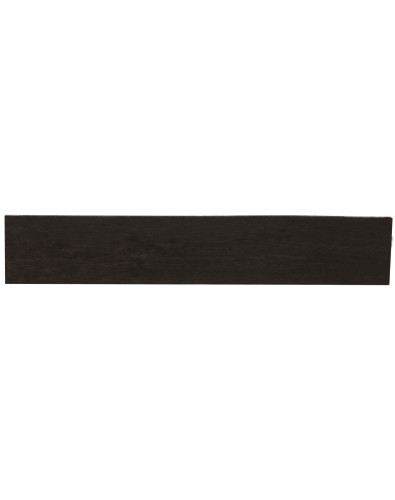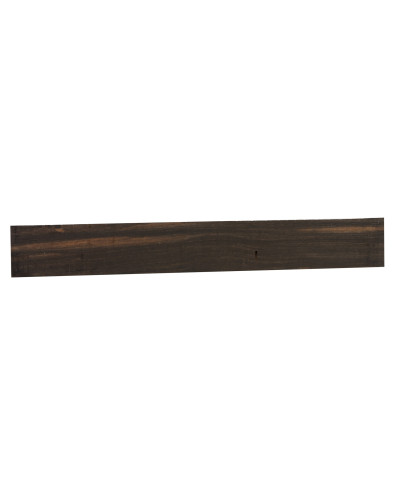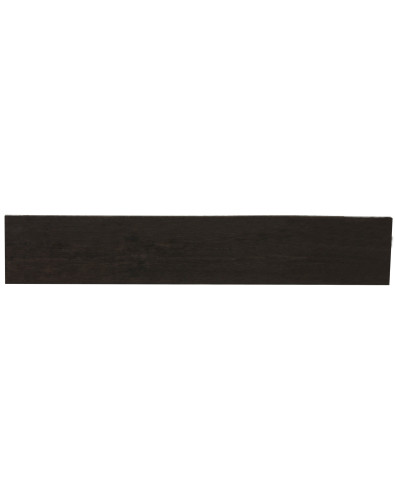African Ebony
Choosing the Ebony for the fingerboard of your lute brings with it an increase in the cache of your instrument, as Ebony is a very prestigious wood used for high level instruments.
Among its properties, besides its beautiful and peculiar black color, we find a great density and ideal resistance to help the neck to support the tension of the strings and to resist the wear caused by the guitarist when playing.
BOTANICAL NAME: Diospyros crassiflora Hiern.
TRADE NAMES: African Ebony, Black Ebony
ORIGIN: Central and Western Africa.
DESCRIPTION: Black wood whose density is 1030-1050 kg/m3. The color of this wood is clear in the sapwood and black in the heartwood. Traditionally, it is common to define this species as having the blackest color, although it may have white veins. The fiber of the Ebony is straight, nevertheless it can be interlaced sometimes. The grain is fine.
RECOMMENDATIONS: It cracks easily under changes of temperature or relative humidity. It is resistant to the action of fungi and insects. Sawing is easy, although tools will need frequent sharpening, while machining and gluing is complicated by being a very dense and hard wood. The finish does not present problems. It can produce certain eczema or skin irritations.
DRYING: The speed of drying varies from normal to slow, drying well in small sizes and presenting a tendency to crack or distort.
USES: In addition to being used on the fingerboards of various instruments, it is also used on wind instruments.





